Your INTJ Personality Type and Your Enneagram Type
INTJs and The Enneagram
Today we’re going to look at the INTJ through the eyes of the enneagram system. Up until now we’ve looked at the INTJ through the Myers-Briggs® system. While the MBTI® explains how your mind works and processes information, the Enneagram shows us your childhood wounds, fears, and core desires. For example, as an INTJ you process abstract information over concrete information (that’s what makes you an N). You prioritize logic/effectiveness over values/personal feelings. You get energy from the inner world of thoughts and ideas (introversion) and have an organized, planned, and decided way of responding to your environment (Judging).
But does this mean that all INTJs are the same? Absolutely not!

Even though INTJs will all have similar mental wiring, this doesn’t mean that they think about all things in exactly the same way. Some INTJs are workaholic perfectionists, while others are withdrawn daydreamers who spend days lost in thoughts and imaginative ramblings. The type of INTJ you are depends largely on your enneagram type. The enneagram maps out nine potential types and their complex interrelationships. These types explain your core drives, basic fears, weaknesses, and strengths. You can find out more about the enneagram here.
Not sure what your enneagram type is? Take our new personality questionnaire here!

Find Out More:
This article will only scratch the surface of the enneagram and how these different types can show up in your life. There is SO much more to discover! Each enneagram type, for example, has an instinct (social, sexual, or self-preservation) that can alter how they show up. Each enneagram type has a wing that will further alter how the type shows up. To find out more about your enneagram type, check out my favorite books on the enneagram below:
The Complete Enneagram: 27 Paths to Greater Self-Knowledge
The Road Back to You: An Enneagram Journey for Self-Discovery
The links to the books above are affiliate links. If you purchase any of these books I get a small percentage that I can use to continue running this site.
Table of contents
- INTJs and The Enneagram
- The Nine Types of INTJs – Which One Are You?
- Enneagram Type One – The INTJ Perfectionist
- Enneagram Type Two – The INTJ Helper
- Enneagram Type Three – The INTJ Achiever
- Enneagram Type Four – The INTJ Individualist
- Enneagram Type Five – The INTJ Investigator
- Enneagram Type Six – The INTJ Loyalist
- Enneagram Type Seven – The INTJ Enthusiast
- Enneagram Type Eight – The INTJ Challenger
- Enneagram Type Nine – The INTJ Peacemaker
Estimated reading time: 19 minutes
The Nine Types of INTJs – Which One Are You?
Enneagram Type One – The INTJ Perfectionist
Basic Fear: Being corrupt, bad, or defective
Basic Desire: To be good, pure, and to have integrity
INTJ Ones are people of order, vision, and righteous determination. They aim to be the quintessential white knights who stand up against evil, discrimination, or illogical thinking. They use their intuition to tailor a vision of a near-utopian future, but then balance that vision with their logical thinking side. How realistic is that vision? What steps need to be arranged to achieve that vision? These are the kinds of questions that run through their minds.
The dilemma of the INTJ One is the inner critical voice that berates them for every minor flaw or lapse in judgment. It also points out the weaknesses and failures of others. This inner voice often stems from a childhood where they felt they had to take on a lot of responsibility or even be the “grown-ups” in their homes. They have a lifelong aim to live for a higher purpose – a sense of how the world “should” be or how they “should” be. INTJ Ones can seem more pragmatic and proactive than the typical INTJ. This is because productivity and a level-head are prized by Ones a great deal.
Ones feel a constant sense of responsibility for the world around them. It’s hard for them to relax because, when they do, the vision of what they should be striving for is always on their mind. They may become restless when it’s time to watch a movie, play a game, or take a vacation. They can also become irritated with people who seem to lack drive or ambition. As Ones grow and mature they become more relaxed, joyful, accepting, and moderate.
Because Ones are in the Instinct/Anger triad of the enneagram, they tend to experience a lot of anger. However, rather than unleashing their anger on others without restraint, they tend to repress it. It often shows up through gritted teeth, rolled eyes, and condescending statements. They are typically harder on themselves than they are on others, but can seem overly-critical of both.
Unhealthy Ones Can Be: Judgmental, Self-Righteous, Bitter, Overworked, Defensive, and Prone to Black-and-White Thinking. At this stage, Ones feel that they will never be “good enough.”
Average Ones Can Be: Serious, Driven, Purposeful, Organized, Punctual, Irritable, Tense, Opinionated, Sarcastic, Hard-Working, Responsible, Dedicated.
Healthy Ones Can Be: Purposeful, Honest, Sensible, Moderate, Objective, Accepting, Hopeful, Wise, Discerning, Joyful, Humble, Playful.
Enneagram Type Two – The INTJ Helper
Basic Fear: Of being worthless, unloved, or unwanted
Basic Desire: To know they are loved
Two is one of the rarer enneagram types among INTJs. INTJ Twos use their insight and quick-thinking abilities to help people. They give advice, step in when there’s a problem and try to solve it. These INTJs are driven by a sense of generosity and a desire to help people in effective, practical ways. Often the good Samaritans, they want to step in and smooth out systems for the people they care about.
In childhood, these Twos were taught to put other’s before themselves. And while this is certainly a good lesson, they usually took it too far. They felt shame when they set boundaries or set their needs ahead of others. They developed a feeling that they had to earn the affection of others through acts of service. Tapping into their thinking side, they tried to fix everything around them in logical ways. They hoped by devoting themselves to being responsible, generous members of the family, they would earn their place (and the love of their family).
Because Twos are in the Shame/Heart triad of the enneagram, they struggle with underlying feelings of worthlessness. They have a sense of unease when they take time for themselves – like they will lose the love of the people they value. On the flip side, they can also experience pride because of how much they believe other people need them or can’t get by without their help. As Twos become healthier and more mature, they learn to set healthy boundaries and take care of themselves. They become more joyful, humble, and relaxed. They no longer feel like they have to earn love, because they know that they are valuable for who they are – not just what they do. With this pressure off their shoulders, they can delve more into their intuition and their feelings. They learn who they are outside of the expectations of others. They develop a more individualistic sense of power and purpose.
Unhealthy Twos Can Be: Meddling, Victim-minded, Overbearing, People-pleasing, Over-worked, Angry, Hurt, Desperate for Love, Exhausted.
Average Twos Can Be: Proud, Selfless, Supportive, Nurturing, Helpful, Flattering, Insecure, Responsible, Well-Intentioned, And Possessive.
Healthy Twos Can Be: Supportive, Generous, Encouraging, Expressive, Joyful, Humble, Imaginative, Creative, Insightful, Secure, Relaxed.
Enneagram Type Three – The INTJ Achiever
Basic Fear: Of being worthless without their achievements.
Basic Desire: To feel desired, worthwhile, and/or accepted.
Strategic and driven, INTJ Threes tend to be more action-oriented than most INTJs. They have a restless drive for achievement and excellence – fearing mediocrity or failure more than anything. They fear that if they lack accomplishment or success that they will be unlovable or worthless. These INTJs often pressure themselves academically in childhood, and then pressure themselves in their careers well into adulthood. They use their intuition and thinking to set goals and then strategically move through life in the correct order to make sure those goals are achieved. They innately know how to get things done, make workable plans, and achieve the vision they set out for themselves.
In childhood, Threes often felt undervalued for who they were. There was a sense that only by doing things successfully or achieving the right status would there worth be validated. Any form of validation lifted their spirits, and they found themselves desperately trying to achieve and strive harder in order to keep that validation coming in. On the outside, INTJ Threes may look somewhat materialistic. Having the right house, the right car, or the right clothes can be very important to them. Other INTJ Threes may care more about having the right degree, the right books on the shelf, or the right relationship. They worry that without these tokens of success they will be a failure or empty inside.
Threes are in the Shame/Heart triad of the enneagram. They try to erase their underlying sense of shame through achievement and accomplishment. However, as they mature and become healthier, they learn to make peace with who they are outside of their accomplishments. They become more generous, helpful, self-accepting, genuine, and benevolent. They learn to embrace their uniqueness and individuality and feel less pressure to prove to the world that they are a success.
Unhealthy Threes Can Be: Show-Offs, Arrogant, Depressed, Angry, Attention-Seeking, Competitive, Hard-Working, Confused, Vain, Burned-Out, Afraid of Intimacy.
Average Threes Can Be: Over-Achievers, Self-Doubting, Ambitious, Self-Promoting, Competitive, Hard-Working, Arrogant, Creative, Innovative, Visionary, Determined, Restless.
Healthy Threes Can Be: Confident, Inspiring, Self-Accepting, Genuine, Creative, Visionary, Imaginative, Insightful, Empathetic.
Enneagram Type Four – The INTJ Individualist
Creative and introspective, the INTJ Four feels compelled to form a vision that lines up with their identity. Finding their identity is a driving force for them. These INTJs are the quintessential introverts – they often feel misunderstood and different from others. However, they do not really crave being alone as much as they usually are. They have a strong desire to connect with someone who will understand them and appreciate their inner world. It’s vital that they have friends and family members who are loyal to them, even when they seem distant or moody. The validation and loyalty they crave often feels unattainable.
In childhood, Fours often felt like misfits in their families. They frequently mention wondering if they were adopted because they felt so unlike everyone else. Because they felt like such “odd ducks,” they weren’t able to see their strengths mirrored in anyone else. They often wondered if something was wrong with them and thus embarked on a “quest for self” in order to understand where they fit in. Their fantasies often involve being finally seen and understood by someone who will totally appreciate them for who they are.
Fours are in the Shame/Heart triad of the enneagram. However, unlike Twos who try to hide their shame by winning love, Fours delve into their shame. They direct their aggression against themselves, and aim to look their flaws square in the face. It’s nearly impossible for them to ignore their deep feelings, and they may even create habits that will stir up strong feelings because they hope it will bring them closer to finding their true identity.
Unhealthy Fours Can Be: Self-destructive, melancholy, self-loathing, self-sabotaging, exhausted, listless, lost in a fantasy world.
Average Fours Can Be: Imaginative, self-conscious, envious, melancholy, introspective, aesthetically-focused, self-absorbed, empathetic, visionary, creative, sensitive.
Healthy Fours Can Be: Eloquent, creative, insightful, imaginative, honest, forgiving, revealing, empathetic, accepting, grateful, self-accepting.
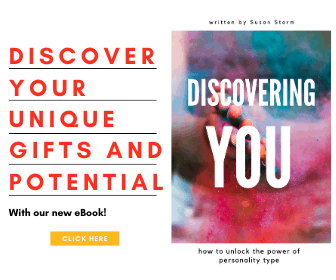
Enneagram Type Five – The INTJ Investigator
Basic Fear: Being useless, incompetent, or overwhelmed
Basic Desire: To have mastery and competence
Fives are one of the more common INTJ enneatypes. They want to understand how the world works in every imaginable way. They delve into information in depth, hoping that with enough data in their mind they’ll be able to feel competent and ready to face the world. For the INTJ Five, knowledge is power. However, the information they pick up from the outside world never feels like enough. Fascinated by intellectual systems, they feel somehow above sentimentality or emotions. They tend to “hoard” knowledge, privacy, and energy. Socializing often feels overwhelming to them. They hate being interrupted, intruded upon, or pressured.
INTJ Fives want to match up the data in their mind with a unique vision. However, they wait so much for the perfect timing that it often passes them by – especially when they are at unhealthy levels of maturity.
In childhood, Fives often felt that they weren’t safe in one way or another. This safety may not have been related to child abuse or anything extreme. They could have felt emotionally overwhelmed by their families or intruded upon. Because of this nagging sensation, they retreated into whatever private space they could find. As life went on, they found solace in these quiet places. Here, they don’t have to worry about having their energy stores depleted. They absorb books, articles, podcasts, and whatever information they can find. Their minds are filled with daydreams, philosophies, and theories. They believe that if only they can attain enough insight and information, then they’ll be able to face the world and finally get out of their quiet inner sanctum.
Fives are in the fear/head triad of the enneagram. Because of this, they have inner issues with fear – however, they may deny it publicly or even to themselves. They try to overcome their anxiety by accumulating knowledge and data. In turn, they may also try to face the darker sides of life – becoming fascinated with oddities, horrors, or “scary” things. They may have a dark side that creates feelings of curiosity and worry in loved ones. It’s important for INTJ Fives to take action and reach out. Rather than stay in the comfort-zone of withdrawal, they need to test their knowledge through action and experience in the outside world. The only way for them to feel complete is to use their intellect and knowledge and turn it into wisdom and experience.
Unhealthy Fives Can Be: Escapist, eccentric, afraid, isolative, secretive, argumentative, under-nourished, removed from their feelings.
Average Fives Can Be: High-strung, Insecure, Secretive, Skeptical, Private, Pre-occupied, Misunderstood, Conceptual, Observant, Intelligent.
Healthy Fives Can Be: Competent, curious, strong, inventive, creative, artistic, clear-headed, independent, profound, grounded, compassionate, perceptive, productive.
Enneagram Type Six – The INTJ Loyalist
Basic Fear: Being abandoned or without support.
Basic Desire: To find security and support.
The INTJ Six has vivid, far-reaching visions of the future and all the disasters that may come to fruition. They are always on the lookout for trouble – “sniffing the air” for any danger or treachery. Constantly fighting for survival, the INTJ Six believes that by being strategic, intuitive, and cautious, they will be able to circumvent obstacles and all manner of terrors. Some INTJ 6s are phobic, doing whatever they can to defend themselves against their anxieties or create a sense of security around themselves. Other 6s are contra-phobic – they face their fears in spite of their anxiety, daring anyone to challenge them or fight them. They are typically more outspoken and aggressive.
The INTJ 6 tries to create an organized, structured system around themselves that makes them feel safe. They want everyone else to be structured and organized as well. This sense of order helps them to feel secure – and they will look to authorities they’ve tested and vetted thoroughly to help guide them. If they can’t find an authority, they will be defiantly independent, skeptical of any and everyone who tries to gain their loyalty. Once Sixes do commit to a belief or an individual, they are deeply devoted, loyal, and protective. They are typically hard workers who will go to any lengths to defend their beliefs or communities.
In childhood, Sixes often felt that their parents were unsupportive, inadequate, or distracted. Usually, during the separation phase of childhood, they felt like the stronger figure in the home was absent, distracted, or weak. This led them to a lifetime of ambivalence and confusion. They felt that they didn’t know who they could trust, and this feeling prevailed into adulthood. Sixes crave closeness and intimacy, but also feel they must defend themselves against it. They might seem outwardly gentle, yet inwardly harbor cynicism and skepticism. It is typically very hard for them to trust.
Unhealthy Sixes Can Be: Plagued by guilt, self-destructive, insecure, delusional, obsessed with fears, anxious, pessimistic, depressed, cautious, impulsive, panicky, helpless.
Average Sixes Can Be: Supportive, authority-seeking, authority-questioning, pessimistic, cautious, anxious, impulsive, indecisive, cynical, dutiful, cynical, hard-working.
Healthy Sixes Can Be: Committed, practical, responsible, insightful, visionary, strategic, friendly, grounded, trustworthy, hard-working, grounded, serene, and courageous.
Enneagram Type Seven – The INTJ Enthusiast
Basic Fear: Of being deprived and in pain.
Basic Desire: To be satisfied, happy, and to have their needs fulfilled.
INTJ Sevens radiate a sense of optimism and visionary passion for the future. They see what’s precious in every moment and view life as a gift to be explored. The future seems filled with possibility, and they strategically go after their vision. Excitable, imaginative, and playful, they tend to have a winning sense of humor while they downplay any negatives in their life.
INTJs of this enneatype are typically more in touch with their inferior Sensing side than other INTJs. They crave adventure, living on impulse, and pursue sensory thrills. Stimulation and entertainment are their loves, and they’ll do anything to keep themselves occupied and excited. However, they can become so focused on winning pleasure and thrills that they become hedonistic, scattered, and indulgent. Their great insights and intuitions might never come to fruition because, at an average or unhealthy level, they struggle to stay focused on one thing at a time.
In childhood, Sevens often felt disconnected from the mother figure in their life. As a result, they learned to nurture themselves and take care of their own needs. Through toys, games, distractions, and activity they found themselves distracting themselves to numb the pain of not being nurtured by the maternal figure in their life. Even into adulthood, Sevens look for objects and distractions to help them repress feelings of separation, hurt, and pain.
Because Sevens are part of the fear/Head triad, they have underlying issues with fear. However, unlike the Six, they don’t dwell on their fear. They repress their anxiety through seeking stimulation, fun, adventure, and possibility. They experience their best growth when they can learn to be still with their thoughts and their intuition, meditating, resting, and allowing themselves to face their feelings.
Unhealthy Sevens Can Be: Impulsive, irresponsible, escapist, hedonistic, joyless, distracted, reckless, scattered, unstable, paralyzed, angry, childish.
Average Sevens Can Be: Impatient, imaginative, adventurous, creative, self-centered, excessive, enthusiastic, distracted, materialistic, restless, skilled at multi-tasking.
Healthy Sevens Can Be: Grounded, realistic, bold, creative, visionary, appreciative, joyful, helpful, satisfied, profound, insightful, generous.
Enneagram Type Eight – The INTJ Challenger
Basic Fear: Being violated or controlled by others.
Basic Desire: To determine their own course in life. To protect themselves.
Highly independent and determined, Eights fight to achieve autonomy, strength, and confidence. They bring enormous energy to whatever task they decide to do, and follow through on their word while only embracing others who do the same. These types want to believe that they have complete control and power over their lives and that no one else will step in and muck things up. They don’t want to feel emotionally vulnerable or in any way indebted to other people. The only problem with this is they may run so far from being vulnerable that they fail to form deep, lasting commitments. These types crave a sense of intensity in their lives – they are visionary, pragmatic, and extremely ambitious.
In childhood, these types often felt pushed around or repressed. They felt that they had to be the responsible ones in the home, and learned that they couldn’t count on anyone but themselves. Some Eights also had parents that rewarded strength, “If someone hits you, hit them back!” “Don’t be a sissy!” For this reason, they built up a sense of aggression with the world and a desire for invulnerability.
Eights are in the Gut/Instinct triad of the enneagram. This means that they have underlying issues with anger. While Sevens distract themselves from their anger and pain, Eights embrace and express their anger. They are direct, bold, and have no fear of confrontation. When they’re threatened or micro-managed, they can become explosive and defiant. They feel that any institution that tries to control them is not to be trusted. They want to exert their freedom – sometimes that means dropping out of school if the teachers are too restrictive, starting their own business if they don’t want someone else bossing them around, or marrying someone their parents don’t like just because they can.
Unhealthy Eights Can Be: Destructive, aggressive, vengeful, high-tempered, rejecting, bossy, confrontational, hardened.
Average Eights Can Be: Hard-working, responsible, resourceful, competitive, boastful, willful, bad-tempered, proud, independent, visionary, ambitious.
Healthy Eights Can Be: Courageous, heroic, independent, action-oriented, forgiving, direct, strategic, generous, inspiring, self-confident, decisive, authentic.
Enneagram Type Nine – The INTJ Peacemaker
Basic Fear: Loss, separation, or fragmentation
Basic Desire: To have inner stability, harmony, and peace of mind.
INTJs with this enneatype are often deeply insightful and visionary. They see things from so many perspectives and angles that sometimes it’s hard for them to settle on one view. Less harsh than some INTJs, they try to keep their presence calm and their demeanor welcoming. These types have the potential to become some of the most profound spiritual seekers of our time. They are typically visionary, imaginative, and deep. They foresee possible conflicts and can uncannily sense the emotional turmoil or authenticity of others. The only issue with this is that Nines often “numb” themselves to the paradoxes and conflicts in the world in order to experience inner harmony and calm. They may hold on to proverbs, platitudes, or sayings that comfort them during times when they’d be better served to express themselves or do something.
In childhood, Nines learned early that the best way to handle turmoil in their environment was to “fade out” or disappear. They learned to dissociate from threatening or traumatic events and make themselves low-maintenance so they wouldn’t ruffle anyone’s feathers or make things worse. They felt that if they asserted themselves or became angry they would do nothing but create more problems. So they stayed in the background, repressed their true feelings, their will, and desires.
Because Nines are in the Gut/Anger triad of the enneagram they have underlying issues with anger. However, unlike Eights who embrace their anger, Nines repress it. They worry that if they express their true rage they will fragment and destroy all that they hold dear. They manage their stress by downplaying their will and their desires. This can lead to passive-aggression, disappointment, and despair if they don’t grow and mature and learn to embrace their voice.
INTJs of this enneatype aren’t as direct as many other INTJs. They are softer-spoken, more compliant, and conduct a lot of their affairs behind the radar rather than ordering other people around. They like a calm, secluded environment and often feel at one with nature when they spend time in solitude outdoors.
Unhealthy Nines Can Be: Withdrawn, disoriented, numb, dissociated, helpless, repressed, lazy, ineffectual, neglectful, passive-aggressive, depressed, and/or listless.
Average Nines Can Be: Compassionate, dismissive of pain, agreeable, kind, routine-oriented, amicable, deflecting, resigned, appeasing, complacent, disengaged, lazy.
Healthy Nines Can Be: Patient, inspiring, self-possessed, serene, level-headed, imaginative, spiritual, present, dynamic, easy-going, kind, comforting, and peaceful.
What Are Your Thoughts?
Find out more about your personality type in our eBooks, The INTJ – Understanding the Strategist, Discovering You: Unlocking the Power of Personality Type, The INFJ – Understanding the Mystic, and The INFP – Understanding the Dreamer. You can also connect with me via Facebook, Instagram, or Twitter!
Other Articles You Might Enjoy:
What It Means to be an INTJ Personality Type
The Shadow of the INTJ Personality Type
10 Things That Excite the INTJ Personality Type
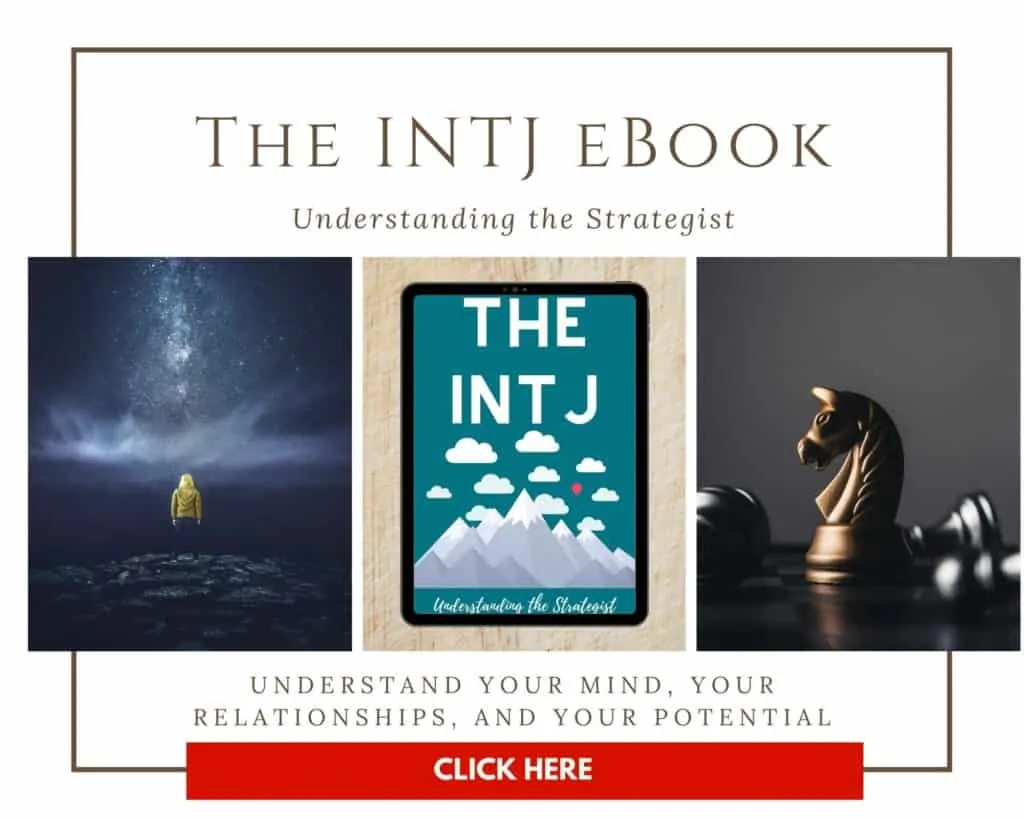
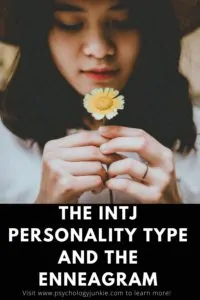



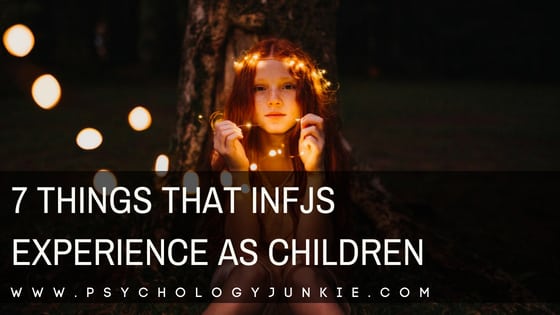



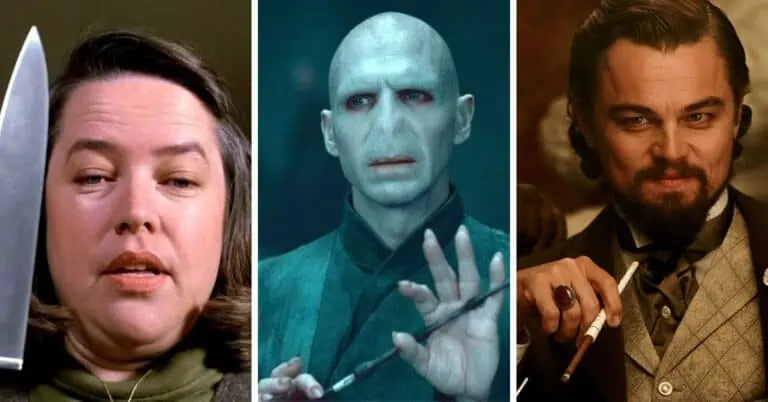
I find enneagram a dichotomy of too confining and too generalized. I identify with several and none of the 9. Where as with the Meyers & Briggs I just kind of sigh and say, “Ah yes, finally someone who gets me.” Thank-you for your articles. They are inspiring and insightful.
This is a really great article. I enjoyed reading all nine Enneagram types of the INTJ. I’m an INTJ myself, and I feel like I have been a little of every enneagram type at different points in my life. I could see myself having acted in a certain way while reading all the types. I’m currently struggling with seeking validation from other people, something that I hardly cared about while growing up.
No INTJ ever wants to hear that they are “average” in any way. But self-awareness prohibits me from disagreeing with this clear assessment. I already knew I was a 9w1, and was content with my “healthiness” in the 1 type areas as I read through this. I am however frustrated at my mediocrity in the 9 type areas of my personality. Reading through the 9 type description was striking dust-covered emotionally-sensitive chords, and I am now highly displeased. I would be interested in any deeper-digging advice or articles on the topic of coming to terms with unresolved childhood issues.
Thank you, by the way, for your time and efforts on this website. I have found it invaluable.
I really liked this article! I hope you end up doing crossovers with the other MBTI types too! Thank you!!
Hello,
Is there a similar site but for the DISC test?
I am looking to see how my INTJ characteristics are combined/translated with the DISC
Really great and revealing information. For the first time in 60+ years, I’ve found information that answers so many questions about myself that have gone unexplained.
Thank you so very much.
I found this page and decided to do the test before reading and got a type 1 which doesn’t feel exactly right. I could relate with a lot of them especially type 1, 4 and 9